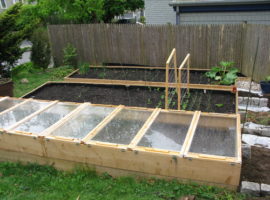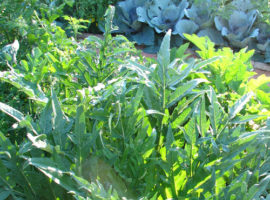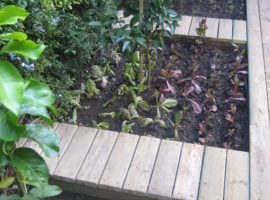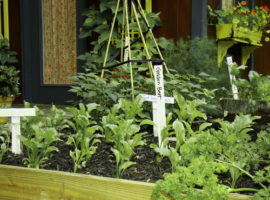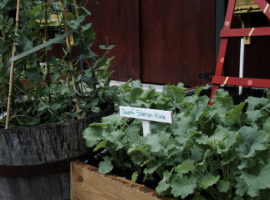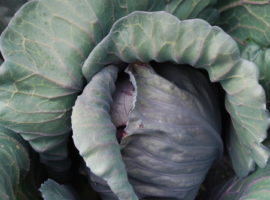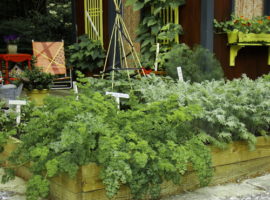The best time to make the most of vegetable gardens is during summers when the dash of colour of ripe tomatoes and aroma of mature plants fill your back gardens. It is the perfect time to grow most of your favourite things like cucumbers, melons, mild peppers, squashes, etc. among other things. These vegetables are what take control over your garden and you spend your entire summer tending to these veggies, planting and replanting as you use them fresh. However, as the fall approaches, we all take a break from our sowing spree and start to plan what will be seeded into these soils next spring. But did you know that you can still nurture this landscape that you leave barren for all these months?
It is a common belief that most of the vegetables only grow in the summer season while there are also some that do pretty well even in the approaching winter months. This is the perfect time for you to plan your cool garden that will blossom just as much, despite the falling temperatures.
This garden comprises of all the plants that do best in the cooler weather and work best for spring and fall soil. There are, in fact, also some that do just as well even when there is frost in the weather. Most people start to plan their winter vegetables at the beginning of the year when the winter is receding, and they just can’t wait to hit the garden bed again with their gardening skills. These vegetables may also be the one that are capable of staying long after the garden has been laid to rest for the fall. However, if you are blessed with a warm winter climate, then these veggies may even sustain peak winter months.
If you are wondering what vegetables you can plant during the approaching winter months, then there are many options that you perhaps didn’t even know about. These veggies are what you can grow as per the change in season.
Popular vegetables that are grown in spring season: Beets, cabbage, broccoli, collards, fennel, onions, garlic, salad greens, turnips, parsnips and Chinese cabbage.
Specialists can grow these vegetables: Brussels sprouts, cauliflower, celery, endive, onions, parsnips, turnips, salad greens, fennel and arugula.
Cool season Veggies: Asparagus, rhubarb and potatoes. Although, they are thought to be grown in summers only, yet they can just as well reap in winters too.
Here is how you can grow all these vegetables even when the temperatures are dipping.
Plan a cold frame
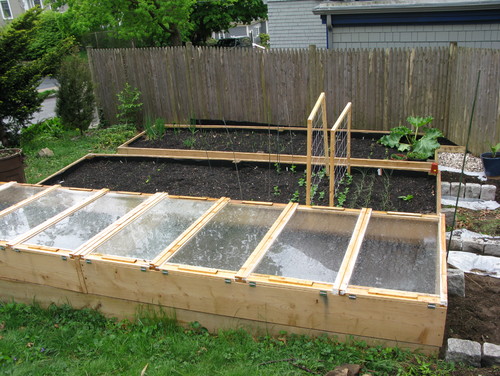
[Image: Natalie DeNormandie]
With the help of cold frames, you would be able to plant the seedlings at the beginning of the season and keep them thriving until later in the season. Although, you can buy these frames from the market, they can also be done by you. You need to hinge the top frame to allow aeration. You can place this cold frame in a garden, and when the temperatures are warm, you can remove the lid while replacing it as the air cools down.
Stay updated about the change in temperature
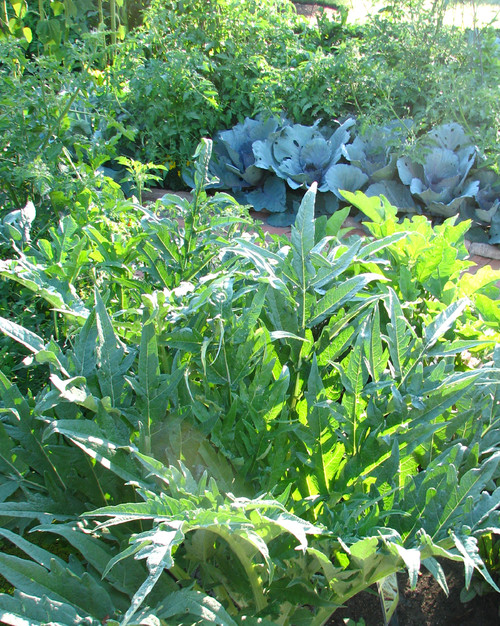
[Image: The Brickman Group, Ltd.]
If you want to get the maximum out of your winter garden, then you must keep a tab on the changing conditions of the air as well as soil, even for the cool season crops. This, generally, means that you must begin planting these crops longs before the fall season so that as the winter arrives, these plants should have reached maturity before the frost or the daytime temperature falls too low. While in spring, you must switch this technique to wait until the temperatures for the air and soil are warm enough for the plants to sustain.
Think green
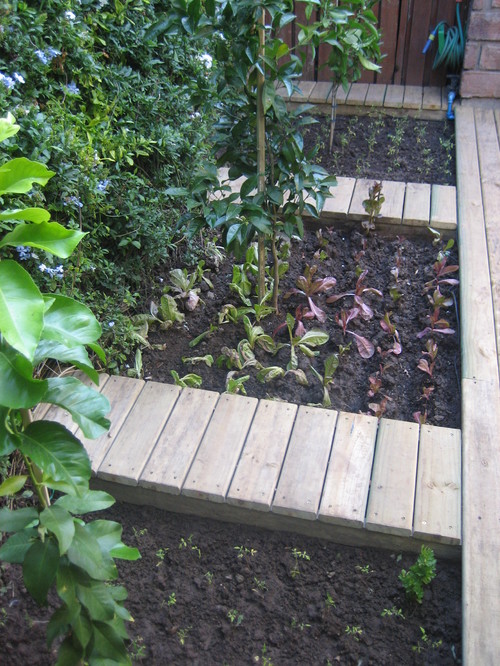
[Image: Carolina Katz + Paula Nunez]
Lettuce, as well as any other leafy veggies becomes bitter if they are not consumed soon after they ripen. However, if you plant them during spring and start of the fall, then you can enjoy their freshness in green salads for several weeks to come.
Underground growth
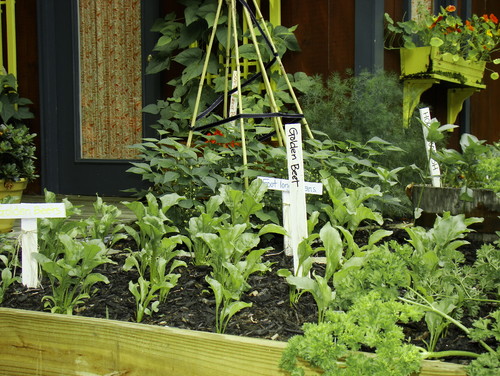
[Image: Robin Amorello, CKD CAPS – Atmoscaper Design]
You can plant crops that mature quickly like the carrots and beets. You can start early in the spring season so that they last well into winters as well or you can plant them at the end of summers too. In both the cases, they will give a fantastic produce especially if you plant a single large crop. So you can sow small patches in sequence to get good results.
Cold friendly vegetables
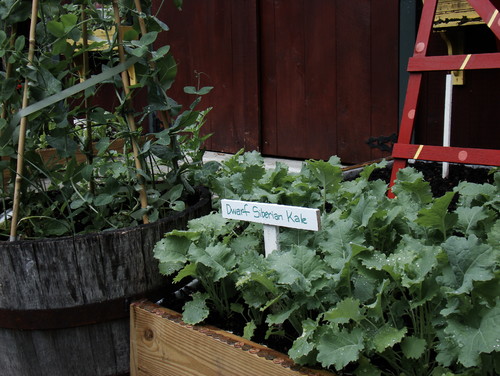
[Image: Robin Amorello, CKD CAPS – Atmoscaper Design]
Some cold veggies are extremely comfortable even in very cold seasons. For instance, Kale can survive the temperatures when they fall below the freezing point and some cases may even sustain the snow.
Crunchy veggies

[Image: Jocelyn H. Chilvers]
The one reason that makes broccoli such a favourite of people in the winter months is because it stays fresh and ripe in this season. As a matter of fact, any member that comes from the cabbage family is a great winter crop as they can sustain the drop in temperatures.
Add life to your garden

[Image: Samuel H. Williamson Associates]
If, after all, these winter veggies, you still have a spot that lies barren, then you can wrap it using the cover crop. Although, you may have far more seasonal vegetables that you know how to use, yet they will help in improving the soil for the next round of veggies. Some plants like legumes, fava beans or cloves have a natural tendency to add nitrogen to the soil and the additional grass provide additional organic matter.
Planning creepers
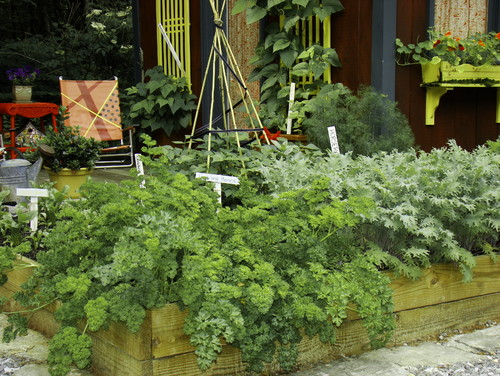
[Image: Robin Amorello, CKD CAPS – Atmoscaper Design]
Tender peas a great choice for spring season, but if you plan them early, you can also enjoy them in the coming winter months. In summer, you can use this support for planting other veggies like beans and get another produce of peas during late spring or the start of fall.
Green vegetable gardens for many people is a summer thing, but with little knowledge and the garden know how, you can extend its life well into the winters. This article is just the beginning to all the possibilities if you pre-plan your winter garden a little ahead of time.


